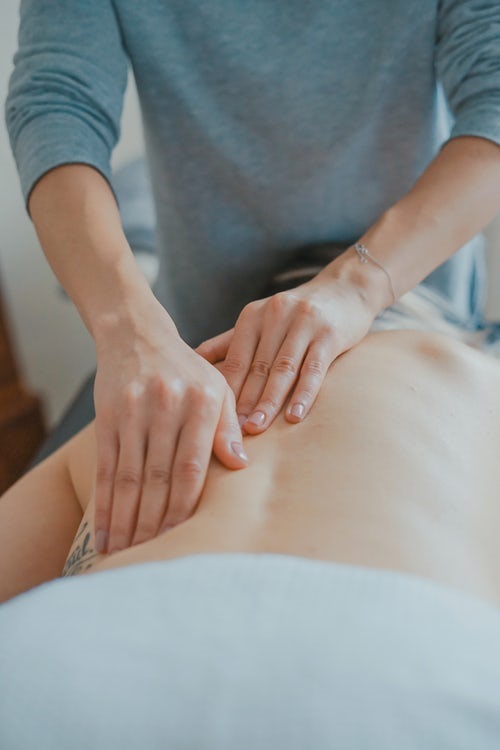
Discover the Ancient Wisdom of Ayurveda
Ayurveda, often referred to as the “Science of Life,” is a holistic and time-tested system of natural healing that has been practiced for thousands of years in India. This ancient approach to well-being encompasses a comprehensive understanding of the mind, body, and spirit, emphasizing the interconnectedness of these elements.
The Essence of Ayurveda
At its core, Ayurveda believes that each individual is unique and that optimal health and wellness can be achieved when there is a harmonious balance between the body’s physical, emotional, and spiritual aspects. This delicate equilibrium is referred to as “prakriti,” and Ayurveda offers a roadmap to identify, achieve, and maintain it.
Why Choose Ayurveda for Healing?
Holistic Approach: Ayurveda addresses the root causes of ailments, focusing on treating the whole person rather than just symptoms. It emphasizes the mind-body connection, offering profound and lasting healing.

Personalized Care: Ayurveda recognizes that each person is distinct. It tailors treatment plans to your specific needs, ensuring that your journey towards wellness is uniquely yours.
Natural Healing: Ayurveda predominantly employs natural remedies, herbal treatments, and dietary adjustments to restore balance and vitality, minimizing the need for synthetic medications.
Preventative Care: Beyond healing, Ayurveda offers invaluable tools for preventive health maintenance. It empowers you to make choices that support long-term well-being.
Proven Efficacy: Ayurveda’s effectiveness in addressing a wide range of physical, emotional, and psychological conditions has been affirmed by countless individuals and practitioners worldwide for more than 5,000 years.
Unlock the Potential of Ayurveda
Ayurveda, with its profound insights and personalized approach, stands as a formidable ally on your journey to health and healing. It offers a powerful complement to modern medical practices, focusing on the innate wisdom of the body and mind. With Ayurveda, you can embrace lasting well-being and a deeper understanding of yourself.
Ready to experience the transformative benefits of Ayurveda? Start your journey with me today.
Your Life Energies
According to Ayurveda, which in Sanskrit means, the Science of Life, everything in the universe is connected. If your mind, body, and spirit are in harmony, and if you are aligned with nature, you will have optimal mental and physical health. When the balance in this connection gets disturbed, you experience illness. What can disturb this balance? Many things: mental and emotional states, age, climate changes, birth defects, and injuries.
The Doshas
Ayurveda believes that everything in the universe is made out of 5 basic elements: space, air, fire, water, and earth.
These combine in the human body to form three life forces or energies, called doshas. They manage how your body works. There are 3 doshas: Vata (space and air); Pitta (fire and water); and Kapha (water and earth).
Everyone has a unique mix of the three doshas. But one is usually stronger than the others. Each one controls a different body function. Your health is linked to the balance of your doshas.
Vata

The king of doshas according to the ancient Ayurvedic text Caraka Samhita. It is the most powerful of all three doshas. It controls the nervous system and the basic body functions, such as cell division. It also controls your mind, breathing, blood flow, heart function, and the ability to get rid of waste through your intestines. It basically governs all movement in the body. Things that can disrupt it are fear, anxiety, grief, overexerting, staying up late at night, extreme fasting, eating too often, and lack of sleep hygiene.
If you have a lot of Vata in your constitution is very important to keep it in balance to prevent conditions like anxiety, asthma, pains, ticks, mental illness, heart, intestinal problems, skin issues, etc.
Pitta

Pitta controls your digestion, metabolism, and hormonal system. To keep Pitta balanced, keep your anger, irritability, and frustration levels in check. Do not forget that patience is a virtue. Avoid eating sour or spicy foods, overexerting, and spending too much time in a lot of heat or under the sun.
Things that can disrupt it are eating sour or spicy foods and spending too much time in the sun.
If you are a person with a high Pitta you are more likely to develop conditions like Crohn’s disease, heart disease, gastritis, ulcers, high blood pressure, skin conditions, hormonal and menstrual disbalances, infections, etc.
Kapha

This dosha governs muscle growth, body strength, stability, weight, and immunity. It gets disrupted when you repress your emotions, sadness, depression, lack of motivation, greed, and resentment. Sleeping during the day, overeating, eating without being hungry, eating too many sugary foods and drinks, and lack of exercise also brings Kapha out of balance. If you have a high Kapha may develop asthma, breathing disorders, sinuses issues, congestion, cancer, diabetes, obesity, nausea, oedema, depression, etc.
The Fire of Life
Another vital concept in Ayurveda is Agni. Agni is the digestive or metabolic fire in our body. It is the intelligence within each cell, each tissue, and every system within the body, including the mind. When Agni stops functioning, death soon follows.
Agni is responsible for a vast range of functions in the body. It also teaches us that an impaired Agni is the main cause of physical and mental disease. Unresolved emotions, a poor diet, and a lifestyle hinder the working of Agni.

There are signs that show that our Agni is not working well:
Emotional disturbances – fear, anxiety, anger, confusion, lethargy, or depression.
Low energy, weakness, or fatigue
Suppressed or over-active appetite
Indigestion: gas, bloating, constipation, nausea, hyperacidity, loose stools, a sense of heaviness, feeling tired or mentally foggy after meals
Insomnia
A tendency toward congestion in the sinuses, the lymph, and even the mind
Luckily Ayurveda knows how to bring Agni back in balance to regain immunity, vitality, and energy.
The Ayurvedic Treatment

Do you have health issues or want to keep yourself in balance? An Ayurvedic practitioner will create a treatment plan specifically designed for you. The Ayurvedic Practitioner takes into account your unique physical and emotional makeup. During a consultation, the Ayurvedic practitioner analyses your constitution finds out where the to unbalance is, and gives you a treatment plan to recover balance so you can feel healthy and happy again.
The goal of treatment is to cleanse your body and mind of toxins that have stayed with you creating illness. The Ayurvedic Practitioner relies on many tools that Ayurveda has to bring you back to health and harmony such as nutrition, lifestyle advice, herbal medicine, massage therapy, and specific treatments for specific ailments.
Yoga as a part of the Ayurvedic treatment

Since Yoga is a sister science of Ayurveda, they work together for the best results and I am not only talking about the Yoga poses known as asanas, but about diverse breathing and meditation techniques to bring the mind and body to a peaceful and powerful place.
An Ayurvedic Practitioner gives advice on the best Yoga practices you can do according to your constitution, personal needs, and health issues. Not all Yoga practices are healthy for everybody.
There is plenty of evidence that supports what Yoga practitioners seem to have known for millennia: Yoga is incredibly beneficial to our overall well-being:
- Improves the Body/Mind Connection
- Helps in Weight Management
- Good for your Mental Health
- Boosts Immune System Functionality
- Strengthens and Tones Muscles and Bones
- Improves Cardio, Respiratory, and Circulatory Health
- Fights Inflammation
What does Ayurveda treat?
Ayurveda treats a big range of health issues and offers extensive therapies and remedies for the young, old, sick, healthy, and everyone in between.

Asthma and other Respiratory Issues
Digestive problems
Skin Disorders and Allergies
High Blood Pressure
Rheumatoid Arthritis and Arthrosis
Stress, Anxiety, Hyperactivity, Sleeping problems, and Depression
Obesity, Diabetes, High Cholesterol, and oedema
Geriatric Conditions (Osteoporosis, Dementia, Alzheimer’s, Parkinson’s, etc)
Menopause
Eye, Nose, and Ear problems
Pain, Headache, and Migraine
Fertility, Pregnancy, and Post-partum
